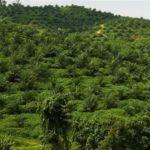Saskatoon – Research at the University of Saskatchewan (U of S) has linked the use of insecticides to serious health issues in songbirds. “Studies on the risks of neonicotinoids have often focused on bees that have been experiencing population declines. However, it is not just bees that are being affected by these insecticides,” said Christy […] Read more

U of S research reveals controversial insecticides are toxic to songbirds

Global study finds trace neonics in much of world’s honey
A study by Swiss scientists has found trace levels of at least one neonicotinoid pesticide in three-quarters of the honey samples it collected from around the world. The study, spearheaded by a team from Switzerland’s Universite de Neuchatel and published in Friday’s edition of the journal Science, was meant to assess “global exposure of pollinators […] Read more

Field studies fuel dispute over whether neonics harm bees
London | Reuters — Two major studies into how bees are affected by a group of pesticides banned in Europe gave mixed results on Thursday, fuelling a row over whether the neonicotinoid pesticides are safe. The studies, one conducted across three European countries and another in Canada, found some negative effects after exposure to neonicotinoids […] Read more

Greig: Ontario environment minister reaches out to farmers
The Ontario Liberal government appears to be attempting to mend the gap created between the government and rural Ontario. Premier Kathleen Wynne apologized on Nov. 19 to Ontarians for the significant rise in electricity costs, now about the highest in North America. According to media reports she said it was her mistake and her government […] Read more

Long-term U.K. study links neonics to wild bee declines
London | Reuters — Wild bees that forage from oilseed rape crops treated with insecticides known as neonicotinoids are more likely to undergo long-term population declines than bees that forage from other sources, according to the findings of an 18-year study. The new research covered 62 species of bee found in the wild in Britain […] Read more

Leading insecticide cuts bee sperm by almost 40 per cent
The world’s most widely used insecticide is an inadvertent contraceptive for bees, cutting live sperm in males by almost 40 per cent, The Guardian in the UK is reporting. Citing research led by Lars Straub at the University of Bern, Switzerland, the report says neonicotinoid pesticides were found to cut the lifespan of the drones […] Read more

France’s Senate suspends palm oil tax, delays neonic ban
Paris | Reuters — The French Senate on Thursday adopted a revised version of its biodiversity bill in which senators scrapped an additional tax on palm oil and delayed until 2020 a ban on pesticides blamed for harming bees. The decisions are not final as the two houses of the French parliament now have to […] Read more

In risks to bees, study finds not all neonics equal
London | Reuters — A group of chemical insecticides known as neonicotinoids that have been banned in Europe due to fears about potential harm to bees have been found in new research to have very differential risks for bumblebees. Scientists who conducted the research said their findings showed that at least one neonicotinoid in the […] Read more

Ontario court rejects grower appeal on neonic rules
The group representing Ontario’s corn and soybean growers, seeking a stay on the province’s new restrictions for use of neonicotinoid seed treatments, won’t get its wish from the provincial Court of Appeal. The appeal court on Wednesday dismissed a March 9 application from Grain Farmers of Ontario (GFO) seeking an interpretation of the province’s new […] Read more

France moves toward all-out ban on neonics
Paris | Reuters — French lawmakers approved plans for a total ban on some widely used pesticides blamed for harming bees, going beyond European Union restrictions in a fierce debate that has pitched farmers and chemical firms against beekeepers and green groups. The EU limited the use of neonicotinoid chemicals, produced by companies including Bayer […] Read more

